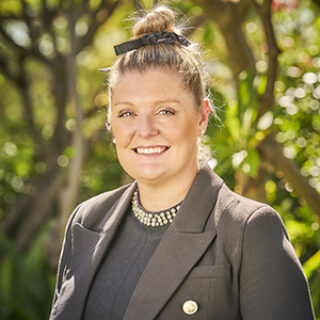From the Assistant Head of Senior School – Pastoral Care and Wellbeing
 Mindful Interactions with Ourselves
Mindful Interactions with Ourselves
As Mindful May continues to progress, and we continue to look at mindfulness, this week I thought I would address the notion of being mindful with ourselves. So often, our girls are not only battling with societal expectations and other external expectations, like social media, pressure to perform to name a few, but they are also battling with the expectations they have of themselves. In fact, all of us, adults and teens can be our own harshest critics.
Last week we focused on building relationships with others and reflected on the THINK concept which in turn is a way of being mindful towards others when we interact with them. This in turn is effectively a method to be kind to others, but there are times when we are not always kind to ourselves. I’m sure most people can identify a time when we have had harsh or nasty thoughts about ourselves. I see our girls doing this to themselves at times throughout the year, whether it is about a mark they received or how they performed in an assessment, whether they overthink their interaction with another or the most common one, criticise the way they look.
Self-compassion is an important skill that we all need to work on over our life time, but one that our girls really need to put into action. The Pastoral Care and Wellbeing team work constantly with our girls to reframe their thinking, we are human, we make mistakes and as long as we learn from them, they are ok to make. Headspace talks about self-compassion as being ‘okay with who you are, even when you make mistakes or things don’t work out perfectly’. They say that ‘being self-compassionate can help to reduce stress, anxiety, depression, improve your sense of self and your ability to think positively about a range of situations’. A great way to encourage positive self-talk and self-compassion, is to consider if you would say what you’re thinking or saying about yourself to a friend or family member. If you wouldn’t say these things to someone you love or care about, it might be an indication that you’re being hard on yourself.
My hope for our girls this week is that they can start to practice some self-compassion. How do they do this? Well, there are a few ways that come to mind:
- Acknowledge that we are human and that we make mistakes.
- Acknowledge that negative self-talk is normal but is not permanent and can be overcome with positive self-talk and self-compassion, but this takes practice and training.
- Acknowledge that we might not always meet the high expectations we set for ourselves, and that’s ok.
- Start to practise changing the dialogue of negative self-talk into positive self-talk. For example, ‘I made a mistake at school the other day, I always make mistakes, I am so stupid’, could be reframed into ‘It’s okay to make mistakes, I am learning from each mistake that I make, and everybody makes mistakes, nobody is perfect’. The more that you practise being self-compassionate, the more naturally it will come to you.
- Practice self-compassion and self-acceptance, as the great Dr Seuss says ‘Today you are You, that is truer than true. There is no one alive who is Youer than You’ and it is indeed wonderful to be you, being unique and yourself is what makes life interesting. It wouldn’t do if we were all the same, life would be boring.
How will you be mindful of the interactions you have with yourself? Will you help your daughters practice some positive self-talk and self-compassion?
– Sarah Tynan
Assistant Head of Senior School – Pastoral Care and Wellbeing


